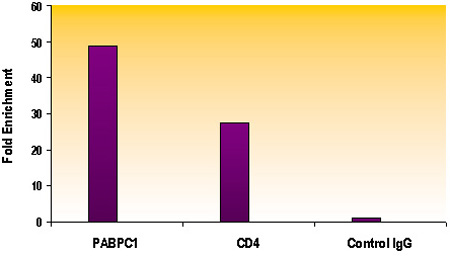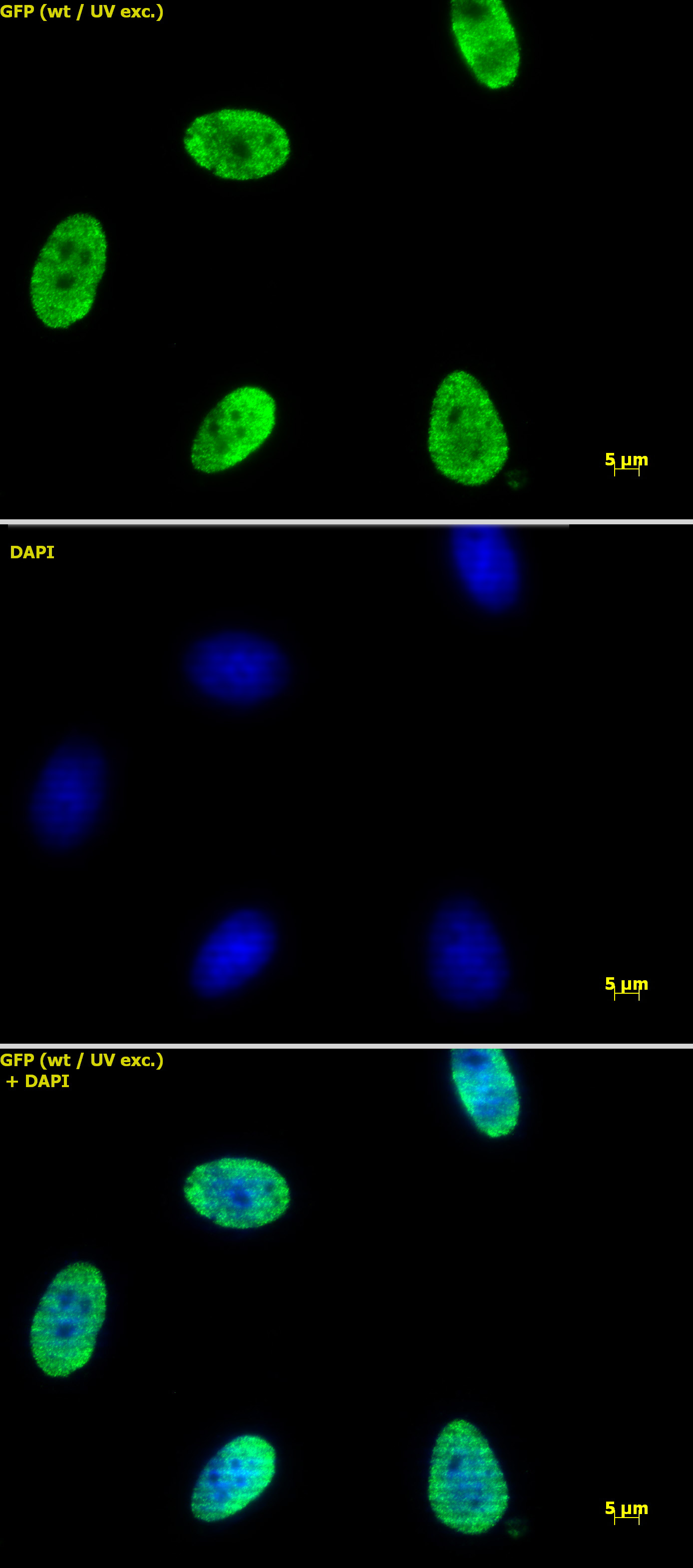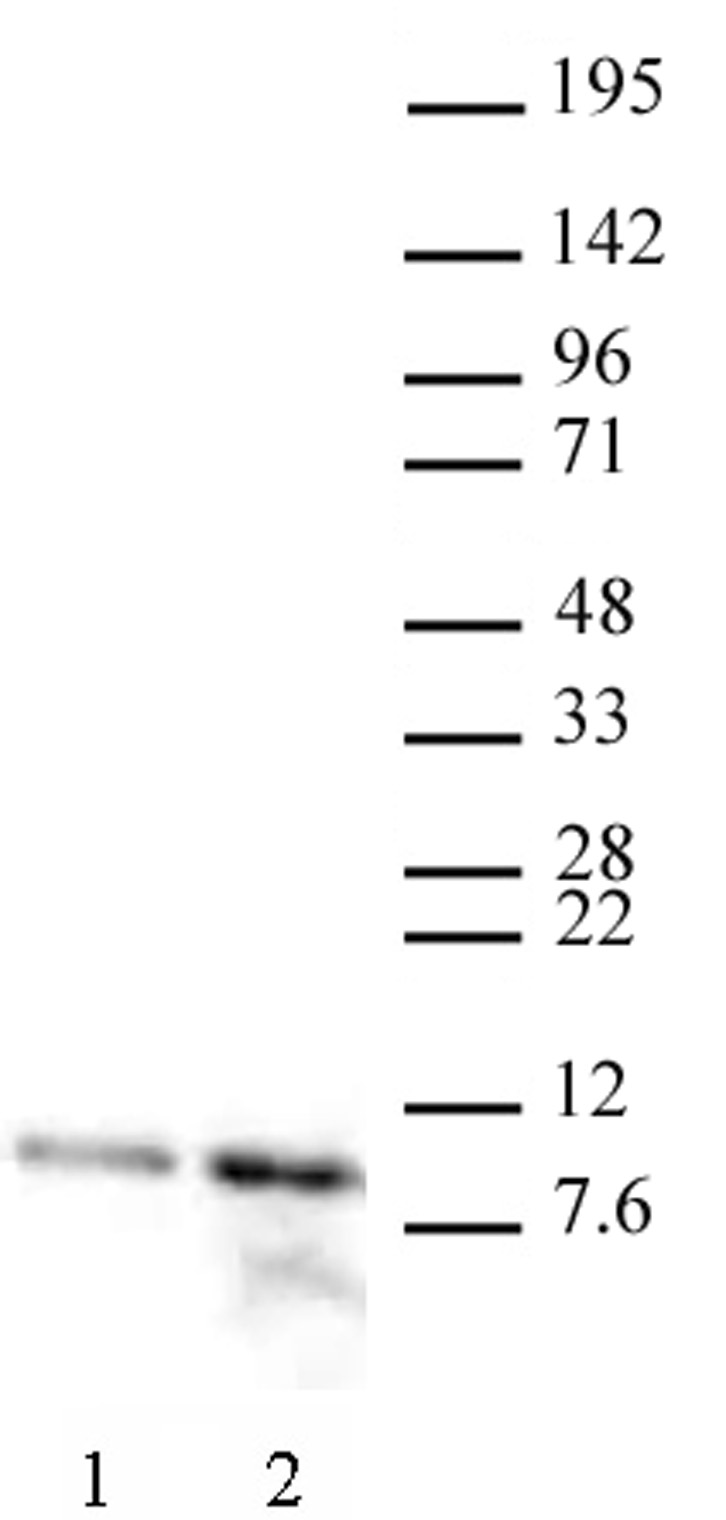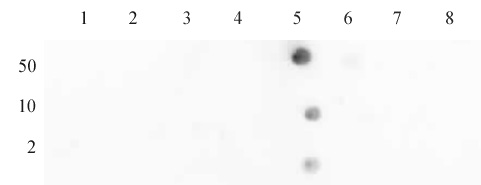Histone H4K12ac antibody (pAb)
Host / Isotype
Rabbit / IgG
Reactivity
Budding Yeast, Human, Mouse, Wide Range Predicted
Applications
ChIP, DB, ICC, IF, WB
Cat No : 39927,39928 39927
Synonyms
Validation Data Gallery
Product Information
| Tested Applications |
ChIP, DB, ICC, IF, WB
Applications Validated by Active Motif: ChIP: 10 ug per ChIP ICC/IF: 1 - 2 ug/ml dilution WB*: 1 - 2 ug/ml dilution *Note: many chromatin-bound proteins are not soluble in a low salt nuclear extract and fractionate to the pellet. Therefore, we recommend a High Salt / Sonication Protocol when preparing nuclear extracts for Western Blot. |
| Tested Reactivity | Budding Yeast, Human, Mouse, Wide Range Predicted |
| Host / Isotype | Rabbit / IgG |
| Class | Polyclonal |
| Type | Antibody |
| Modification | Acetylated |
| Immunogen | This Histone H4 acetyl Lys12 antibody was raised against a peptide including acetyl-lysine 12 of histone H4. |
| Full Name | Histone H4K12ac antibody (pAb) |
| Synonyms | histone H4, histone, H4, histone-H4, histoneH4, pAb, polyclonal, H4 AcK12, Histone H4 Acetyl Lys12, Histone H4 Acetyl K12, Histone H4 Ac Lys12, H4 Acetyl Lys12, H4 Acetyl K12, H4 Ac Lys12, Histone H4 Acetylated Lysine 12, Histone H4 Acetyl Lysine12, H4 Acetylated Lysine 12, H4 Acetyl Lysine12, antibody, antibodies, H4K12Ac, sample |
| Molecular weight | 8 kDa |
| GenBank accession number | NP_778224 |
| RRID | AB_2793396 |
| Purification Method | Protein A Chromatography |
| Buffer | Purified IgG in PBS (pH 7.5) with 30% glycerol and 0.035% sodium azide. Sodium azide is highly toxic. For your convenience, an unpurified serum version (Catalog No. 39165) of this antibody is also available. |
| Storage | Some products may be shipped at room temperature. This will not affect their stability or performance. Avoid repeated freeze/thaw cycles by aliquoting items into single-use fractions for storage at -20°C for up to 2 years. Keep all reagents on ice when not in storage. |
Background Information
Histone H4 is one of the core components of the nucleosome. The nucleosome is the smallest subunit of chromatin and consists of 147 base pairs of DNA wrapped around an octamer of core histone proteins (two each of Histone H2A, Histone H2B, Histone H3 and Histone H4). Histone H1 is a linker histone, present at the interface between the nucleosome core and DNA entry/exit points; it is responsible for establishing higher-order chromatin structure. Chromatin is subject to a variety of chemical modifications, including post-translational modifications of the histone proteins and the methylation of cytosine residues in the DNA. Reported histone modifications include acetylation, methylation, phosphorylation, ubiquitylation, glycosylation, ADP-ribosylation, carbonylation and SUMOylation; they play a major role in regulating gene expression. Lysine N-e-acetylation is a dynamic, reversible and tightly regulated protein and histone modification that plays a major role in chromatin remodeling and in the regulation of gene expression in various cellular functions. The acetylation of histone H4 Lys12 is carried out by several histone acetyltransferases (HATs). Histone H4 Lys12 acetylation by TIP60 occurs in the nucleus, whereas Hat1-mediated acetylation of histone H4 Lys12 occurs in the cytoplasm, indicating the spatial regulation of histone acetylation. The acetylation of histone H4 Lys12 residue is commonly associated with transcriptional activation.




